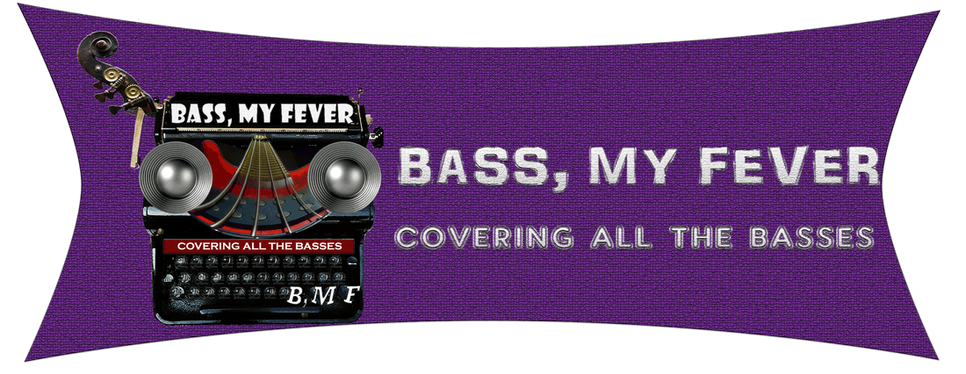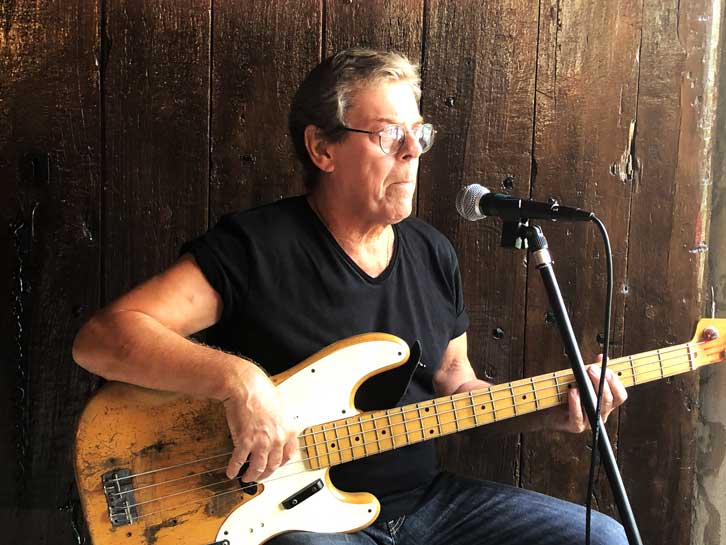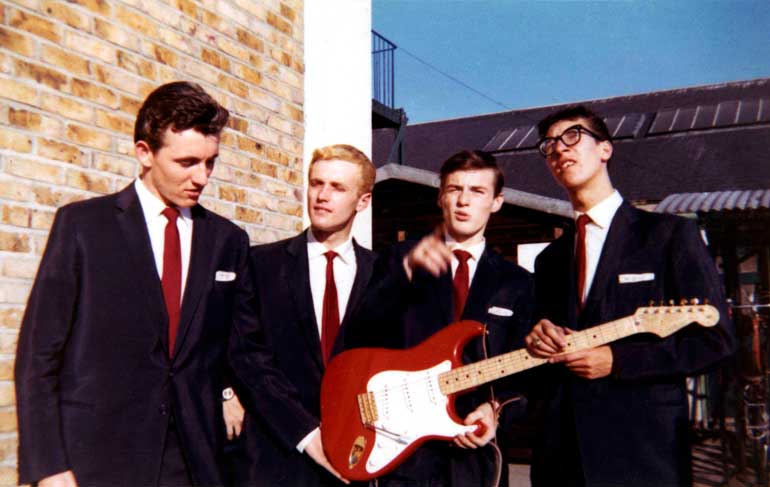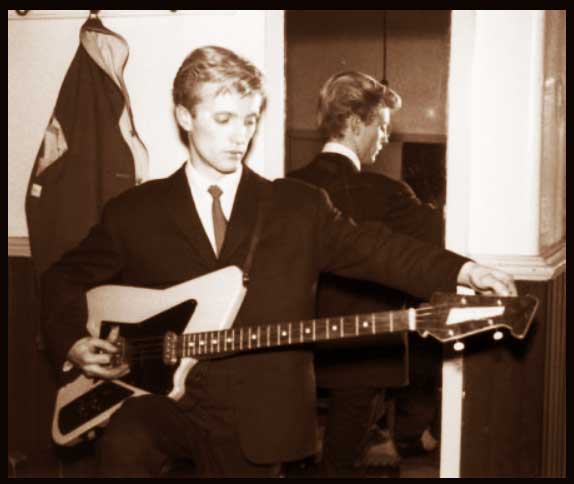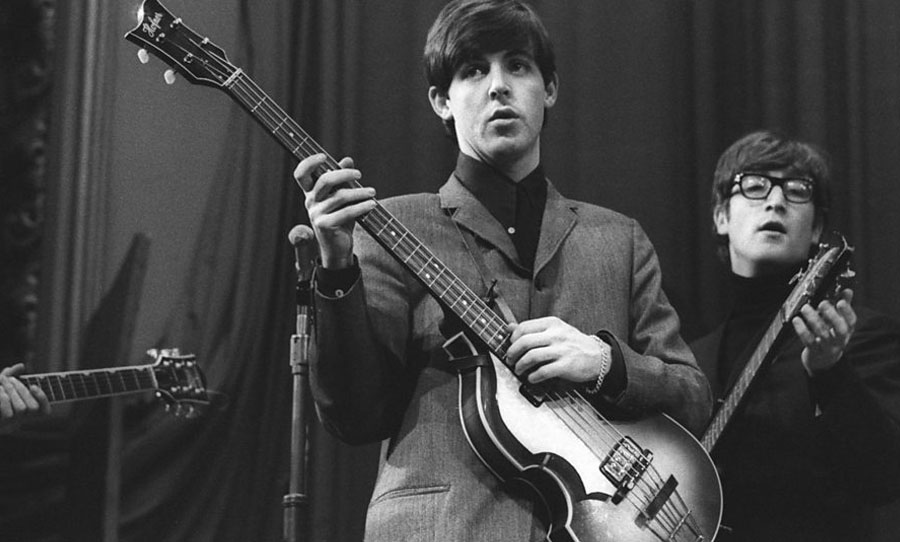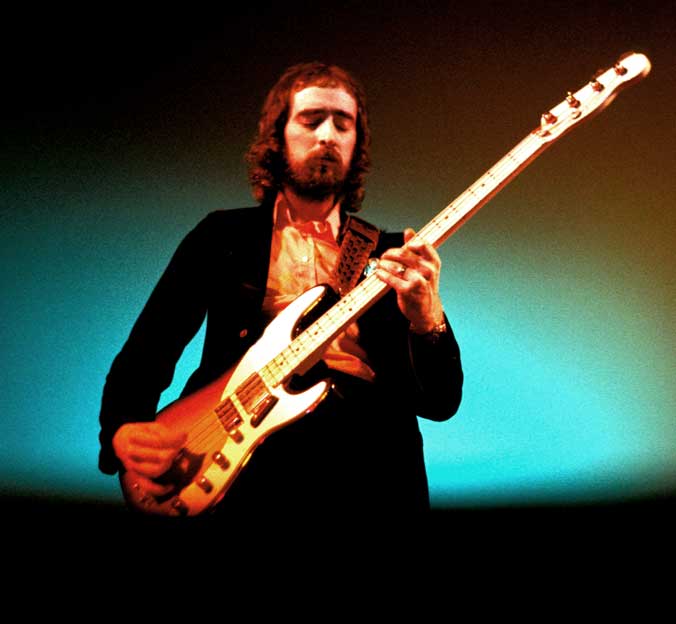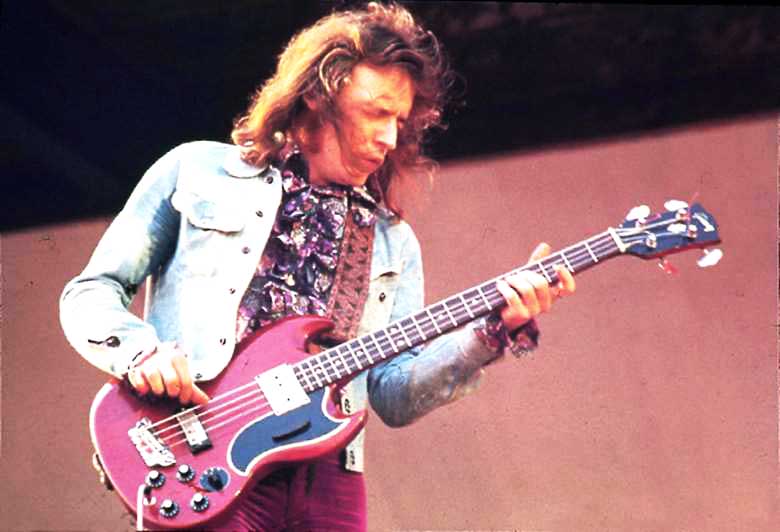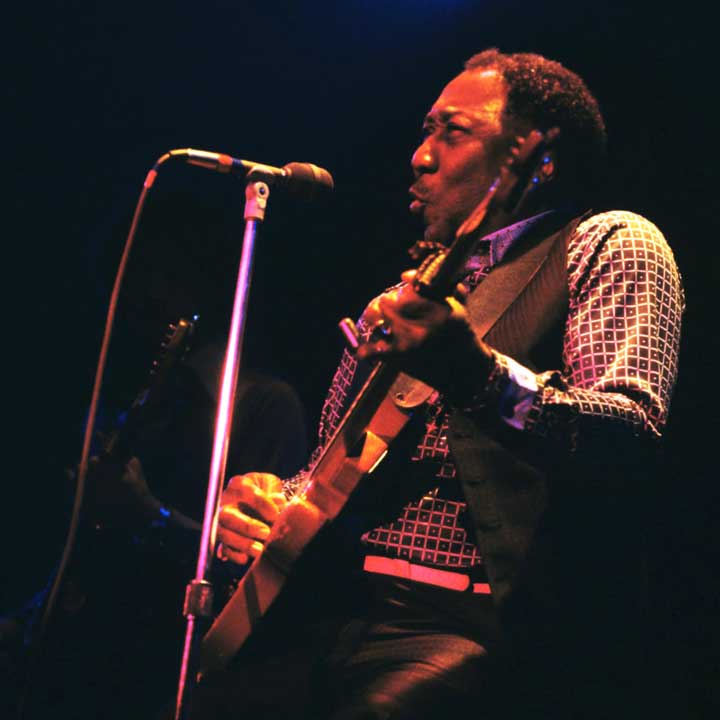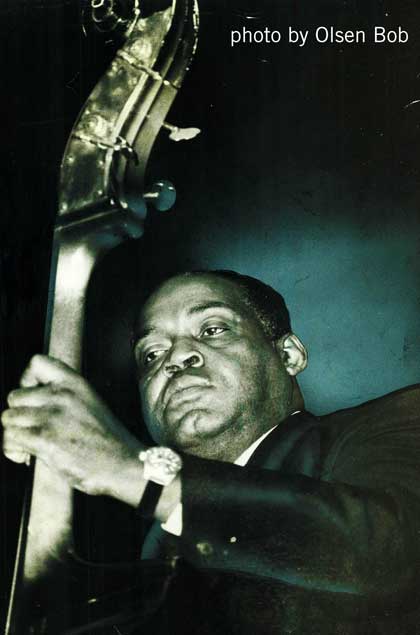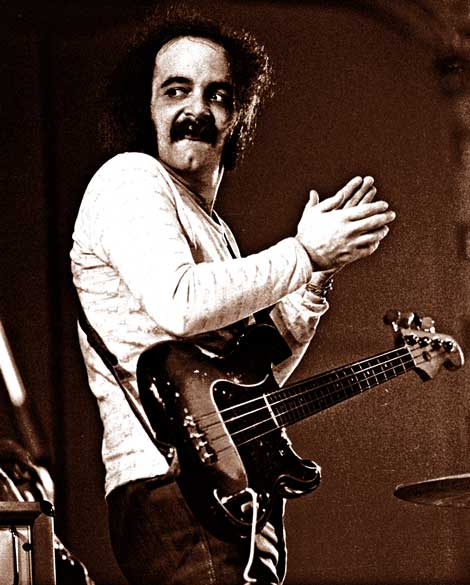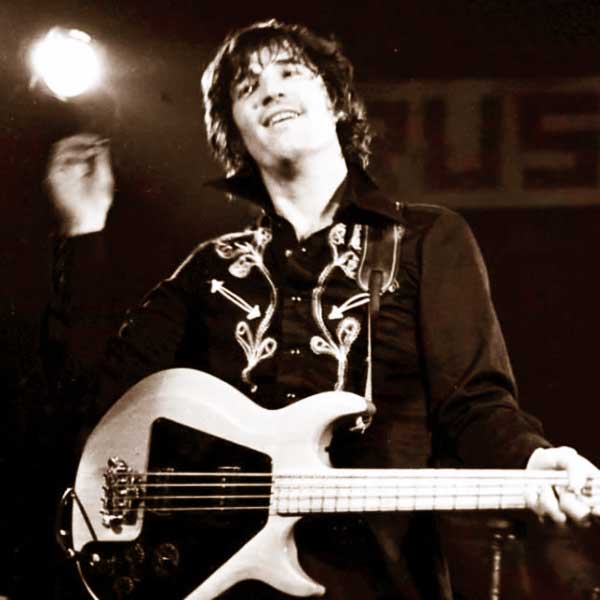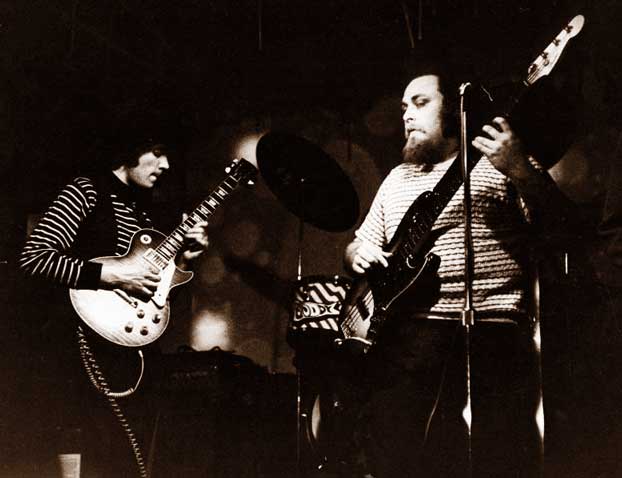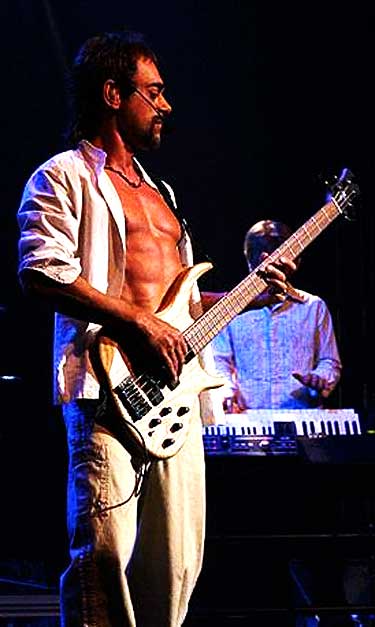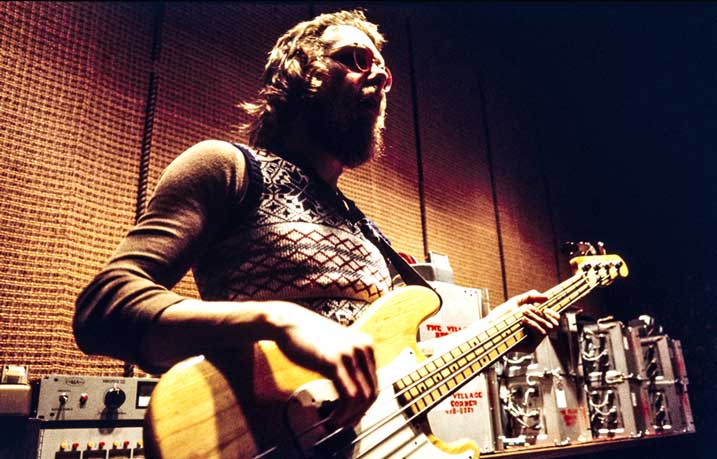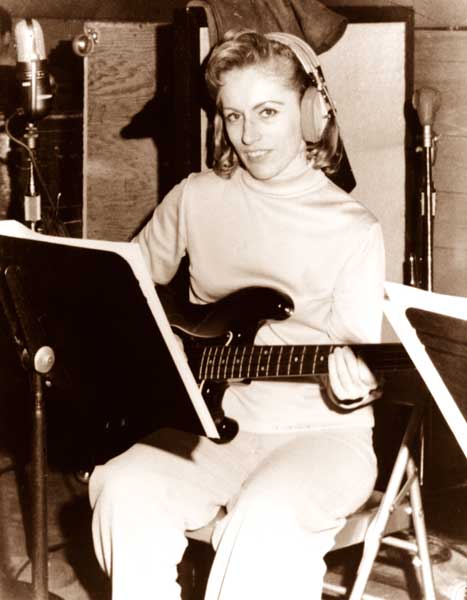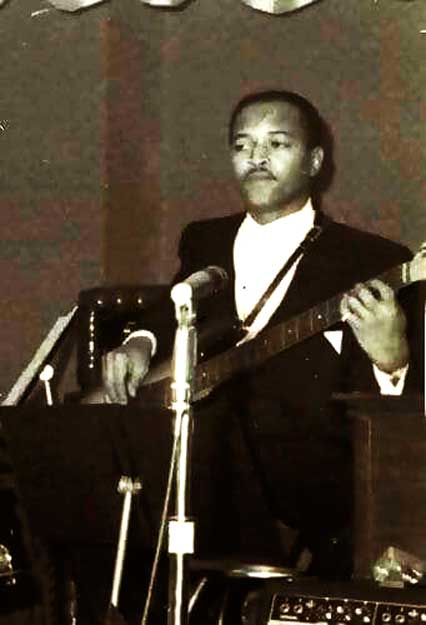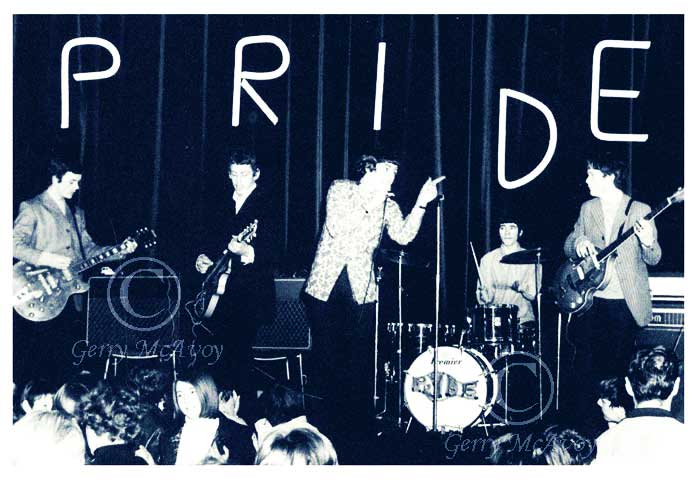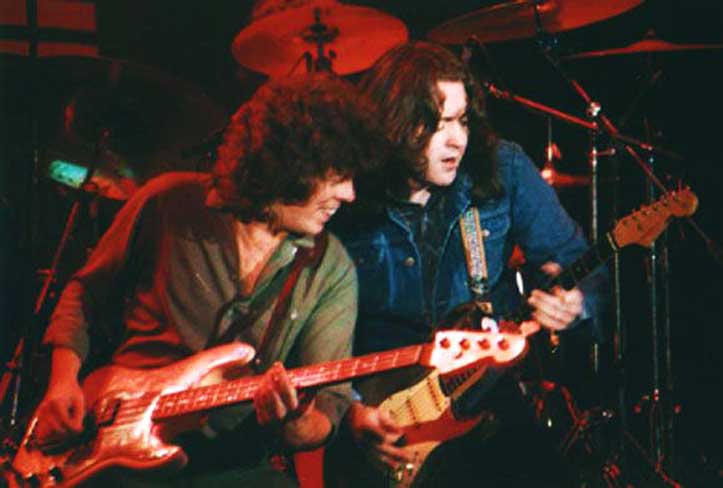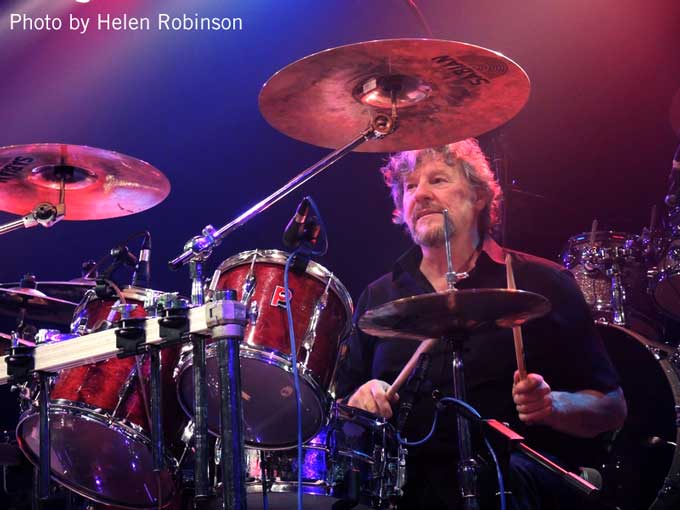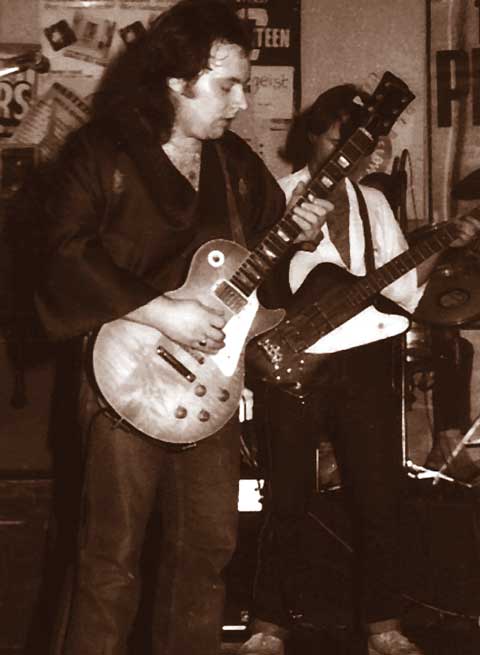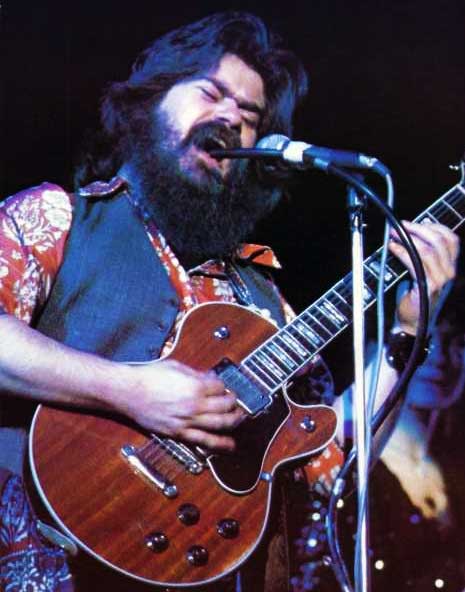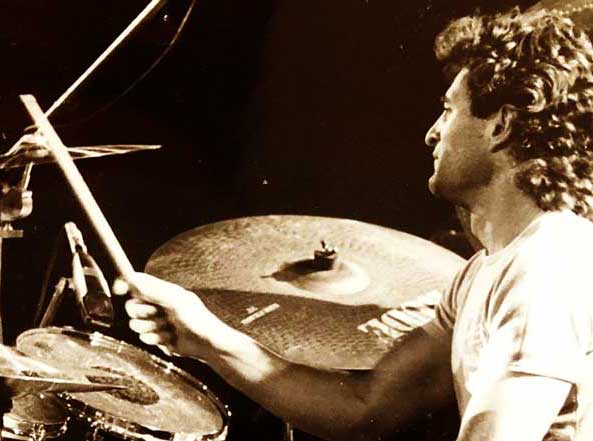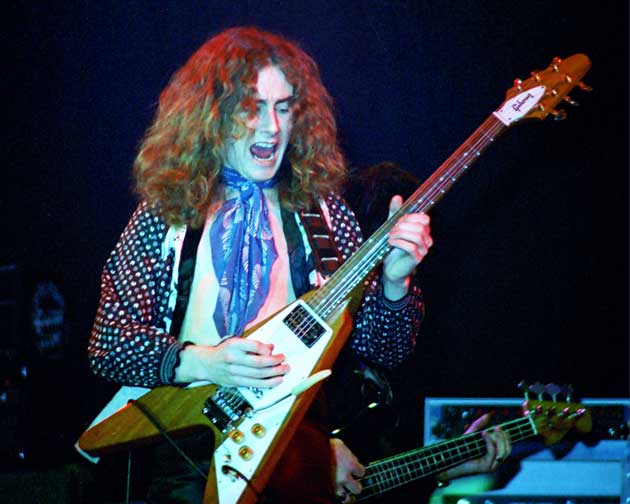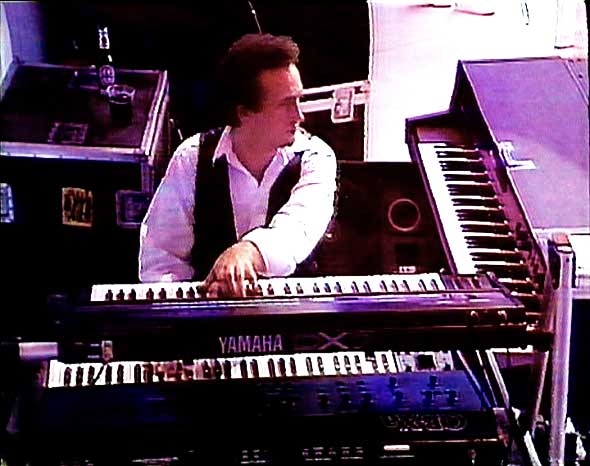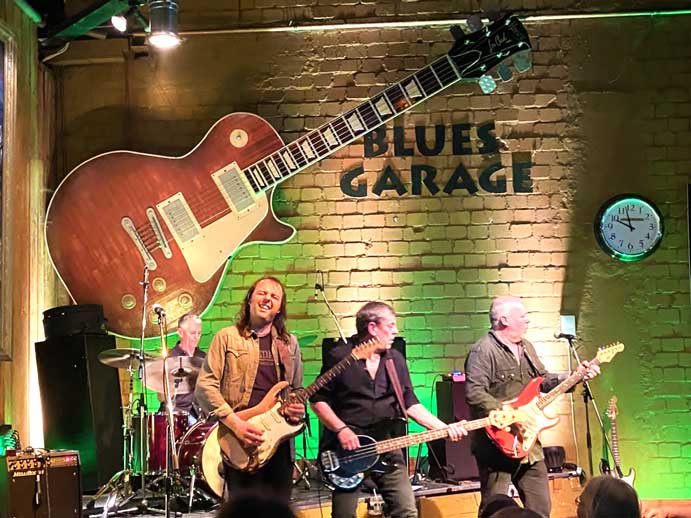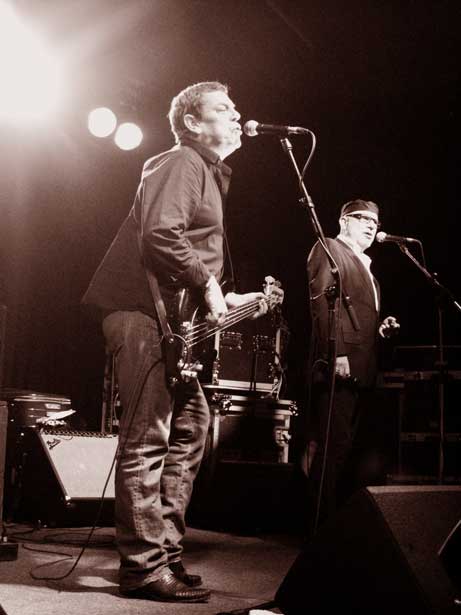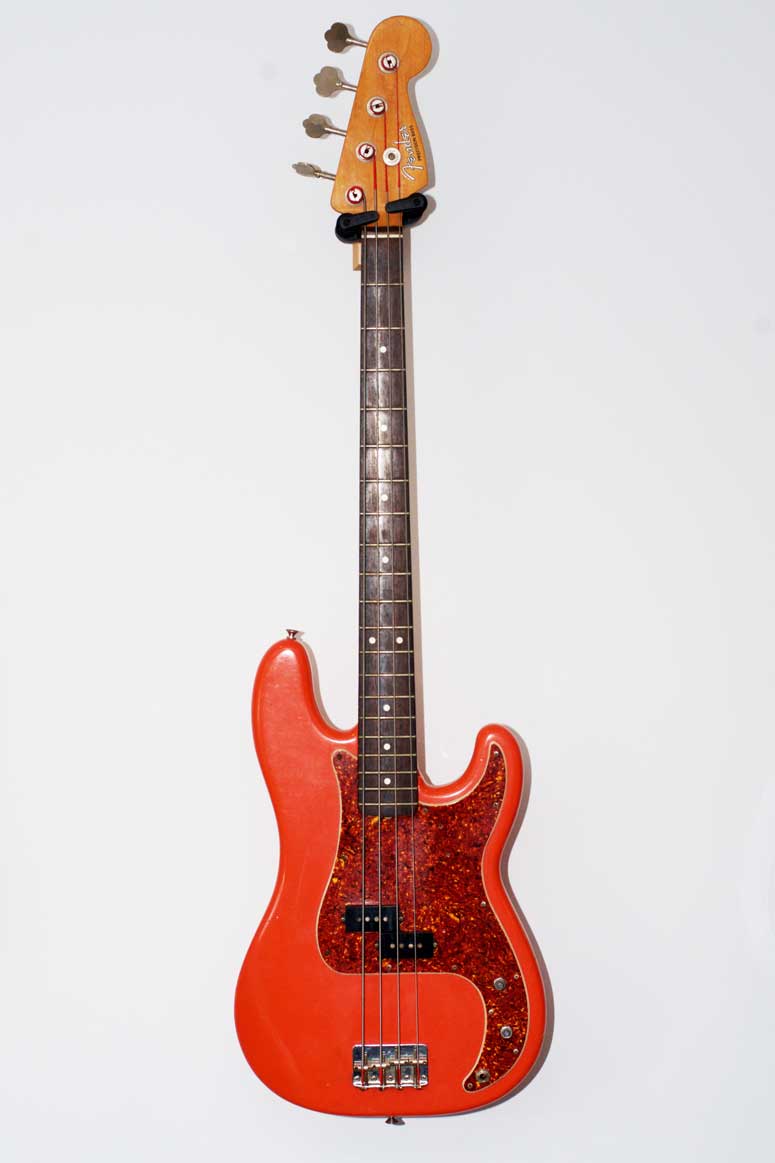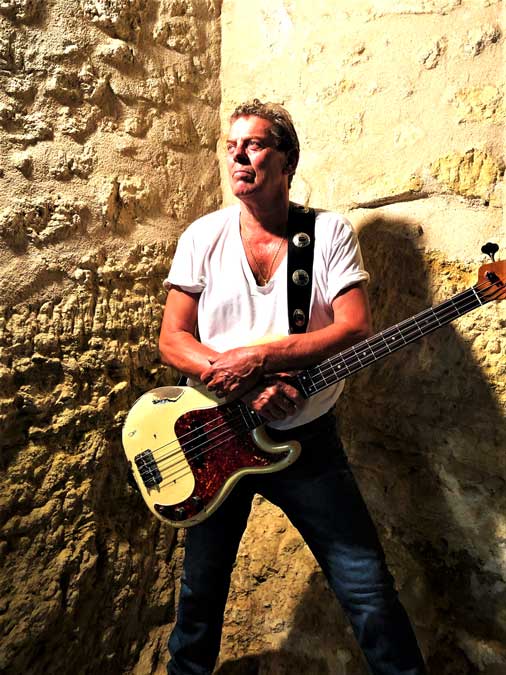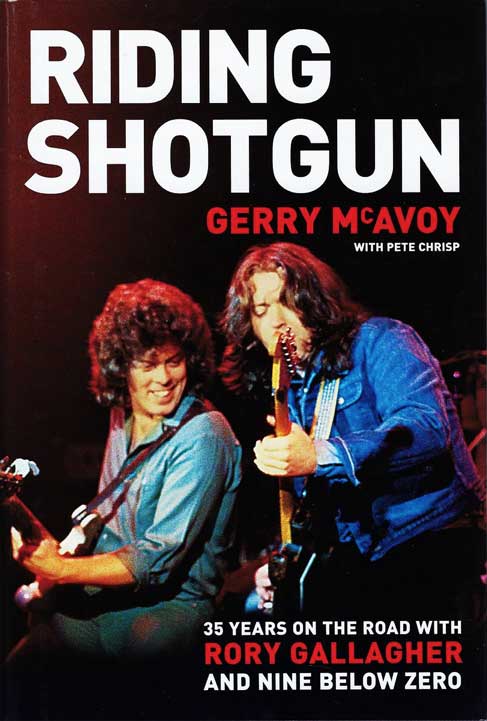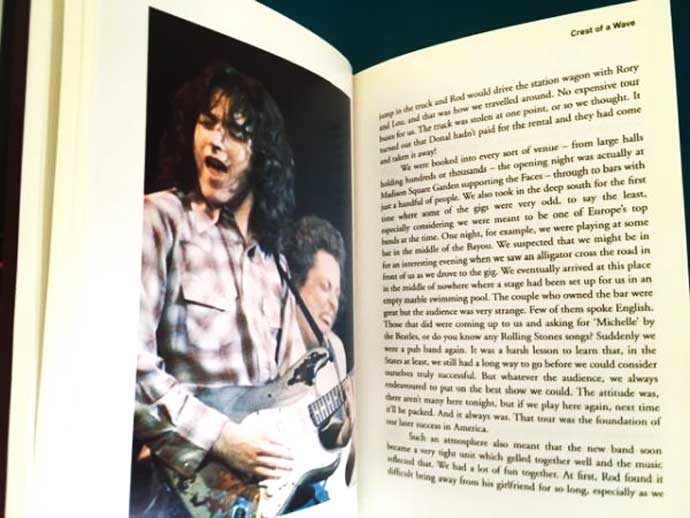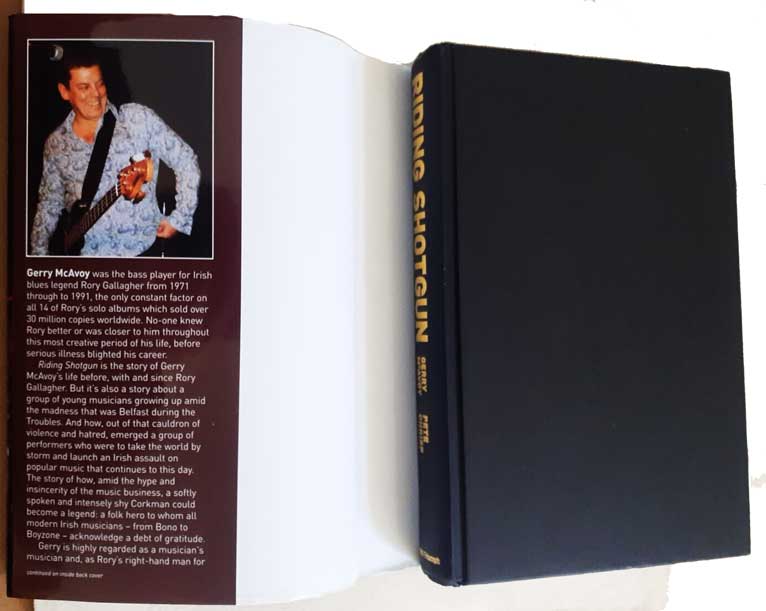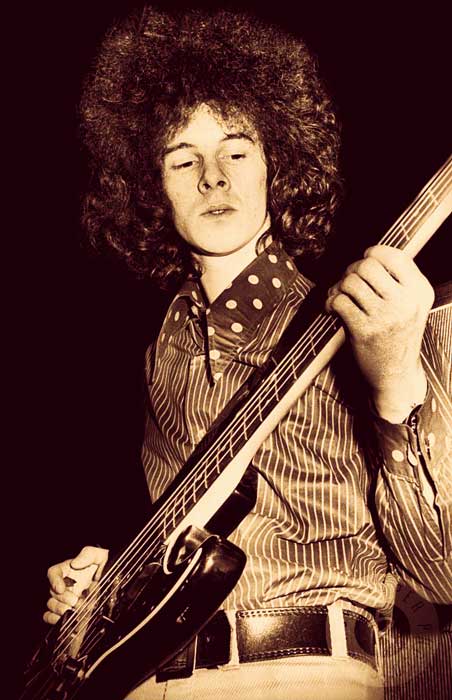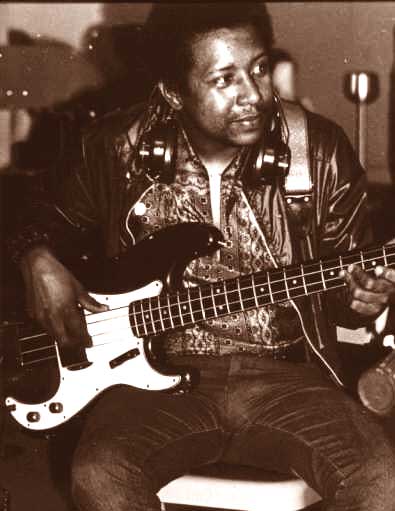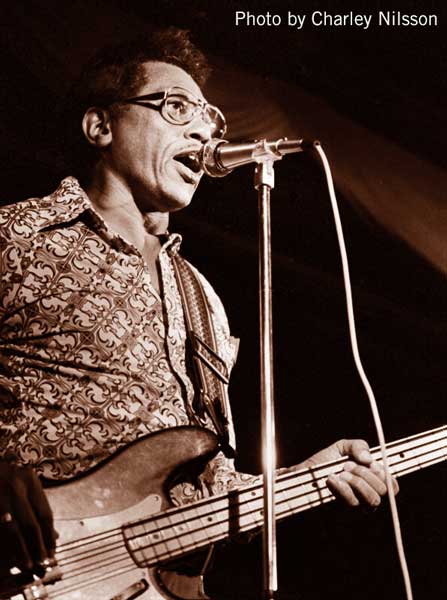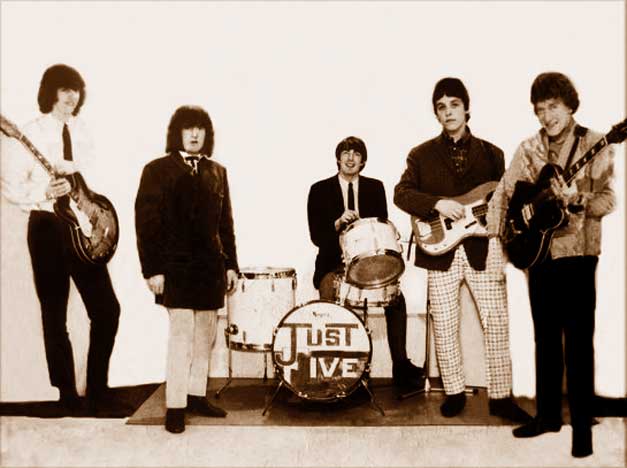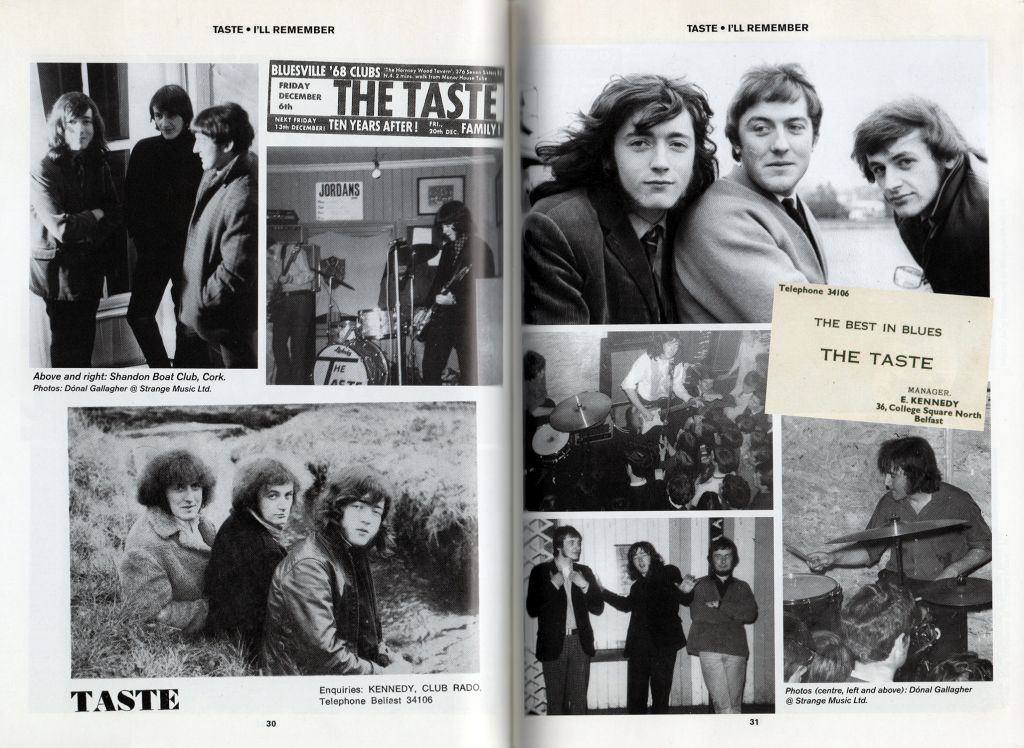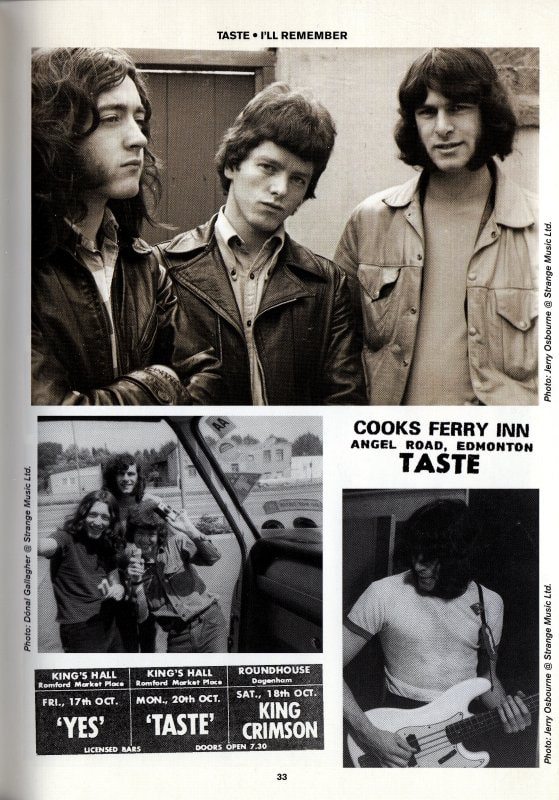INTERVIEW WITH
GERRY MCAVOY
(RORY GALLAGHER, NINE BELOW ZERO, BAND OF FRIENDS)
GERRY MCAVOY
(RORY GALLAGHER, NINE BELOW ZERO, BAND OF FRIENDS)
|
«...there was a unique telepathy between myself and Rory (Gallagher, Ed.). I could read what he was about to play and vice versa. I always thought the bass would be the foundation of a Three-piece sound. So I liked to play as far down the neck to really get those big fat notes to underpin what Rory and the drummer were playing. I think it worked...»
....... «...c'era quindi una telepatia unica tra me e Rory (Gallagher, NdR). Potevo leggere quello che stava per suonare e viceversa. Ho sempre pensato che il basso sarebbe stato il fondamento del sound in trio. Quindi mi piaceva suonare fino in fondo al manico per ottenere quelle note grandi e grosse per sostenere ciò che Rory e il batterista stavano suonando. Credo che abbia funzionato...» |
|
Write Gerry McAvoy and you immediately think of the wonderful records Rory Gallagher made with our Gerry on the four strings. Of course, we are beyond the myth, but to be specific, Gerry McAvoy is the ideal bassist to enhance the power trio dimension with his robust, solid presence and the relaxed fullness of his sound. To reinforce this natural prerogative, which has been further strengthened with the addition of Rory, it must be said that Gerry is a musician with a perfect balance between rock and blues, with an open mind and uncommon versatility. With a long run in the glorious Nine Below Zero and two excellent solo albums behind him, Gerry McAvoy is one of the bass players of Olympus and we were very happy when, in the pandemic, he granted us the interview you are about to read, which will give you back a pure musician, in love with his work and always on the brightest paths of rock and roll. We thank Gerry for his inestimable testimony of life and music. |
Scrivi Gerry McAvoy e subito pensi ai dischi meravigliosi incisi da Rory Gallagher con il nostro Gerry alle quattro corde. Siamo oltre il mito, è chiaro, ma andando nello specifico va detto che Gerry McAvoy è il bassista ideale per esaltare la dimensione del power trio, con la sua presenza robusta, solidissima e la distesa pienezza del suo sound. A rafforzare questa naturale prerogativa che si è esaltata con Rory, va detto che Gerry è un musicista in perfetto equilibrio tra rock e blues, con uno sguardo aperto e una duttilità fuori del comune. Con una lunga percorrenza nei gloriosi Nine Below Zero e due ottimi album solisti alle spalle, Gerry McAvoy è uno dei bassisti dell’Olimpo e siamo stati davvero felici quando, durante la pandemia, ci ha concesso l’intervista che state per leggere e che vi restituirà un musicista puro, innamorato del suo lavoro e da sempre sulle strade più luminescenti del rock and roll. Ringraziamo Gerry per la sua preziosissima testimonianza di vita e musica. |
|
|
|
|
BMF: We already know something about your bass influences and musical inspirations among which there are artists like Jet Harris in addition to Paul McCartney and Muddy Waters. Personally I adore Jet Harris and I find that he’s hardly mentioned as an influence today. Who are the bassists of that period who mostly inspired you? GERRY MCAVOY: I grew up in the 50’s and 60’s and the Shadows were my first real introduction to music. They were very accessible, if you lived in Ireland or England. They could be seen regularly on variety TV programmes, mostly on Sunday nights. Jet Harris was the first bass player, and he just looked great. The way he moved and played the bass at the same time was riveting. Later I would listen to Paul McCartney. I would study his bass lines. He was so melodic as a bass player. Just listen to his bass lines on the Beatles track “Something”. In later years, when I discovered the blues, I would listen to the British blues acts of the 60, s. So I discovered John McVie/Jack Bruce to name a few. Then from there I started listening to the Chicago blues guys, Especially Muddy Waters who in my estimate was the master. So, I discovered Willie Dixon. Not just a great bass player but a great song writer. |
BMF: Sappiamo già qualcosa delle tue influenze di basso e delle tue ispirazioni musicali, tra le quali ci sono artisti come Jet Harris, oltre a Paul McCartney e Muddy Waters. Personalmente adoro Jet Harris e trovo che oggi sia poco citato come influenza. Chi sono i bassisti di quel periodo che ti hanno maggiormente ispirato? GERRY MCAVOY: Sono cresciuto negli anni '50 e '60 e gli Shadows sono stati la mia prima vera introduzione alla musica. Erano molto accessibili, se vivevi in Irlanda o in Inghilterra. Li si poteva vedere regolarmente nei programmi televisivi di varietà, soprattutto la domenica sera. Jet Harris è stato il primo bassista, ed era semplicemente fantastico. Il modo in cui si muoveva e allo stesso tempo suonava il basso era avvincente. In seguito ho ascoltato Paul McCartney. Studiavo le sue linee di basso. Era così melodico come bassista. Basta ascoltare le sue linee di basso nel brano dei Beatles "Something". Negli anni successivi, quando ho scoperto il blues, seguivo i gruppi blues britannici degli anni '60. Così ho scoperto John McVie/Jack Bruce, per citarne alcuni. Poi ho iniziato ad ascoltare i ragazzi del blues di Chicago, soprattutto Muddy Waters, che secondo me era il maestro. Quindi ho scoperto Willie Dixon. Non solo un grande bassista, ma anche un grande autore di canzoni. |
|
BMF: Focusing on this topic, are there in your opinion any bassists unjustly overlooked or forgotten? If it’s so, would you mention any of them and explain why, in your view? GM: I think the above-mentioned Willie Dixon wasn’t given the credit he deserved as a bass player. Probably because his song writing talent overshadowed his bass playing. Other players I admire, and should be recognised are Larry Taylor, Rick Danko, Andy Fraser, Norman Watt-Roy, Harvey Brooks, Tim Bogert, and last but not least Carol Kaye, a woman bass player in a man’s world. Carol Kaye probably played on some of the most popular pop songs of the sixties. Songs such as “And then he kissed me” The Crystals, “You’ve lost that loving feeling” The Righteous brothers, “River deep, Mountain high” Ike & Tina Turner. “Good vibrations” The Beach boys, to name a few. In later years I became hooked on Tamla Motown, the bass was always mixed high on those records. The bass player on a lot of those early sessions was James Jamerson (The hook). He was named the hook because he used just one finger for picking. |
BMF: Concentrandoci su questo argomento, ci sono secondo te dei bassisti ingiustamente trascurati o dimenticati? Se è così, ne citeresti qualcuno e ne spiegheresti il motivo? GM: Penso che al già citato Willie Dixon non sia stato dato il credito che meritava come bassista. Probabilmente perché il suo talento nella scrittura delle canzoni metteva in ombra il suo modo di suonare il basso. Altri bassisti che ammiro e che dovrebbero essere considerati sono Larry Taylor, Rick Danko, Andy Fraser, Norman Watt-Roy, Harvey Brooks, Tim Bogert e infine Carol Kaye, una bassista donna in un mondo di uomini. Carol Kaye ha probabilmente suonato in alcune delle canzoni pop più popolari degli anni Sessanta. Canzoni come "And then he kissed me" dei Crystals, "You've lost that loving feeling" dei fratelli Righteous, "River deep, Mountain high" di Ike & Tina Turner. "Good vibrations" dei Beach Boys, solo per citarne alcune. Negli anni successivi mi sono appassionato alla Tamla Motown, il basso era sempre mixato in alto su quei dischi. Il bassista di molte di quelle prime sessioni era James Jamerson (The hook). Lo chiamavano il gancio perché usava un solo dito per il picking. |
|
BMF: You’re rightly considered as one of the most influential bassists in blues rock music ever, with your 21 years spent along with Rory Gallagher and then with your loyalty to Nine Below Zero. You’re a model for many young bass players. How would you define your role in Rory’s music and albums? GM: To define my role in Rory’s music. I was just 19 years old when I joined Rory. I was young and keen to learn. With Rory as a sort of mentor I learned a lot. I eventually found my own style of playing the bass. I didn’t start out playing bass, I started out playing guitar in my first High school band “Pride”. After our bass player left, I decided to take over the role of bass player in the band. Because of my knowledge of 6 string guitar, I could read Rory’s chord shapes very quickly. So there was a unique telepathy between myself and Rory. I could read what he was about to play and vice a versa. I always thought the bass would be the foundation of a Three-piece sound. So I liked to play as far down the neck to really get those big fat notes to underpin what Rory and the drummer were playing. I think it worked. BMF: Would you like to tell us a memory about Rory and your relationship with him? GM: Rory and I were very close, not just as musical partners but as friends. We would socialise a lot together, even off the road. My memory of Rory was first a really professional musician, and secondly as a true gentleman. |
BMF: Sei giustamente considerato uno dei bassisti più influenti della musica rock blues di sempre, con i tuoi 21 anni trascorsi al fianco di Rory Gallagher e poi con la tua fedeltà ai Nine Below Zero. Sei un modello per molti giovani bassisti. Come definiresti il tuo ruolo nella musica e negli album di Rory? GM: Definire il mio ruolo nella musica di Rory... Avevo solo 19 anni quando mi sono unito a Rory. Ero giovane e desideroso di imparare. Con lui che era per me una sorta di mentore ho appreso molto. Alla fine ho trovato il mio stile nel suonare il basso. Non ho iniziato con quello strumento ma con la chitarra nella mia prima band liceale "Pride". Dopo che il nostro bassista uscì dalla band, decisi di subentrargli. Grazie alla mia conoscenza della chitarra a 6 corde, riuscivo a leggere molto velocemente gli accordi di Rory. C'era quindi una telepatia unica tra me e lui. Potevo leggere quello che stava per suonare e viceversa. Ho sempre pensato che il basso sarebbe stato il fondamento del sound in trio. Quindi mi piaceva suonare fino in fondo al manico per ottenere quelle note grandi e grosse per sostenere ciò che Rory e il batterista stavano suonando. Credo che abbia funzionato. BMF: Ti va di raccontarci un ricordo di Rory e del tuo rapporto con lui? GM: Io e Rory eravamo molto legati, non solo come partner musicali ma anche come amici. Socializzavamo molto insieme, anche al di là del nostro comune percorso. Il mio ricordo di Rory è innanzitutto quello di un musicista davvero professionale, e in secondo luogo di un vero gentiluomo. |
|
BMF: There are two records under your name which is to say Bassics and Can’t win them all, last one licensed by Peter Purnell’s Angel Air (whom we also interviewed to this link, Ed.). I’d like to ask you about how these albums was born and in particular we’d like to know the story of Bassics which is on sale only at Bridge House Music… GM: During the late seventies, I decided to record a solo album with Bridgehouse records. I had always composed songs, and it was something I wanted to pursue. Obviously with Rory I couldn’t expose my songs, because Rory was the song writer and that was that. Which I had no problem with. So “Bassics” was born. The album was side one, my songs, and side two a live recording taken from the Bridgehouse pub, Canning town, London. I was joined by some great musicians on that recording. Ted McKenna and Brendan O’Neill on drums, Dave Edwards on guitar, Steve Waller on vocals and guitar, to name a few. I went on to make a second solo album in the early eighties, “Can’t win 'em all”. Yet again with some great players, Brendan again on drums, Jimmy the Greek on guitar, Dave Flett (Manfred Mann) on guitar. Ian Kewley (Paul Young) on keyboards. I think they are about to be reissued on vinyl. |
BMF: Ci sono due dischi a tuo nome, ovvero Bassics e Can't win them all, quest'ultimo licenziato dalla Angel Air di Peter Purnell (che abbiamo anche intervistato a questo link, ndr). Vorrei chiederti come sono nati questi album e in particolare vorremmo conoscere la storia di Bassics che è in vendita solo presso Bridge House Music... GM: Alla fine degli anni Settanta decisi di registrare un album da solista con la Bridgehouse records. Avevo sempre composto canzoni, ed era qualcosa cui volevo dedicarmi. Ovviamente con Rory non potevo eseguire le mie canzoni, perché Rory era l'autore dei pezzi della band e questo era quanto. Il che non mi creava alcun problema. Così è nato "Bassics". Il primo lato dell'album era composto dalle mie composizioni, mentre il secondo era una registrazione dal vivo fatta al Bridgehouse pub di Canning Town, a Londra. In quella registrazione mi hanno affiancato alcuni grandi musicisti. Ted McKenna e Brendan O'Neill alla batteria, Dave Edwards alla chitarra, Steve Waller alla voce e alla chitarra, per citarne alcuni. All'inizio degli anni Ottanta ho realizzato un secondo album da solista, "Can't win 'em all". Ancora una volta con alcuni grandi musicisti, Brendan alla batteria, Jimmy the Greek alla chitarra, Dave Flett (Manfred Mann) alla chitarra. Ian Kewley (Paul Young) alle tastiere. Credo che stiano per essere ristampati in vinile. |
|
BMF: How was your adventure with Band Of Friends born and how’s it going on? GM: I had left the UK and moved to France in 2007. When I unpacked, I found my old stereo record player and all my vinyl, including all the Rory albums I played on, which was all of them. I began listening to all those albums again, and started to realise what great songs. I thought to myself, wouldn’t it be great to play these songs again, but with the right musicians. At that time, I was playing with Nine Below Zero, so I put my idea on hold for a few years. Then around the end of 2010 Nine Below Zero were playing a concert in Glasgow, Scotland. Ted McKenna turned up at the show, and I mentioned my idea of getting together and playing Rory’s songs again. He said yes and then he asked who we can get on guitar. Yet again a few years earlier I was invited to play at a Rory appreciation gig. I was told that the guitarist was a young guy from Amsterdam. So that’s when I met Marcel Scherpenzeel. So I decided to ask Marcel if he would like to join up with myself and Ted, he said yes. We played a few festivals during the Summer of 2011 and it was shaky, but I could feel there was a future for the band. My idea was to call it “Band Of Friends”. So after I left Nine Below Zero in December 2011, Band Of Friends started touring for real from 2012 onwards. We toured Europe with Marcel, Ted and myself. We also did four tours of the USA with Ted, myself and guitarist Davy Knowles, who is a phenomenal guitarist and vocalist. Marcel couldn’t come to the US because of commitments in Europe. Sadly we lost Ted McKenna in January 2019, after a minor operation went wrong. I didn’t really want to continue after that, but something inside told me, I must go on. It was difficult at the beginning to gig without Ted,he was such an integral part of the band. But I managed to get Brendan O’Neill on drums (Rory 1981 -1991). So through 2019 and into early 2020 we toured with the new line up of Brendan, Marcel and myself. During the Autumn and Winter of 2019, I was starting to feel uneasy with the line-up. Marcel was rehearsing his own band, which was great. I’ve always advocated playing with as many different musicians as you can is healthy. But when he told me he was going to play Rory’s songs with his new band, I felt let down. So I decided to rehearse some new musicians. I decided on two guitarists Paul Rose (who won a Fender sponsored competition, judged by Rory), Also on guitar a young German guitarist Stephan Graf (Who played with his own band, Double vision) So that’s where we are at the moment, waiting to get on the road again. |
BMF: Come è nata la tua avventura con i Band Of Friends e come sta andando avanti? GM: Nel 2007 ho lasciato il Regno Unito e mi sono trasferito in Francia. Quando ho disfatto le valigie, ho trovato il mio vecchio giradischi stereo e tutti i miei vinili, compresi tutti gli album di Rory su cui avevo suonato, cioè tutti. Ho ricominciato a riascoltare tutti quegli album e ho iniziato a rendermi conto di quanto fossero belle le canzoni. Mi sono detto: non sarebbe fantastico suonare di nuovo quei pezzi, ma con i musicisti giusti? In quel periodo suonavo con i Nine Below Zero, quindi ho accantonato l'idea per qualche anno. Poi, verso la fine del 2010, i Nine Below Zero hanno tenuto un concerto a Glasgow, in Scozia. Ted McKenna si è presentato allo spettacolo e io gli ho accennato alla mia idea di riunirci e suonare di nuovo le canzoni di Rory. Lui mi ha detto di sì e mi ha chiesto chi potevamo chiamare alla chitarra. Ancora una volta, qualche anno prima, fui invitato a suonare a un concerto tributo per Rory. Mi dissero che il chitarrista era un giovane di Amsterdam. Fu allora che conobbi Marcel Scherpenzeel. Decisi quindi di chiedere a Marcel se gli sarebbe piaciuto unirsi a me e a Ted, e lui disse di sì. Abbiamo suonato in alcuni festival durante l'estate del 2011 e la situazione era un po' incerta, ma sentivo che c'era un futuro per la band. La mia idea era di chiamarla "Band Of Friends". Così, dopo aver lasciato i Nine Below Zero nel dicembre 2011, i Band Of Friends hanno iniziato a fare dei veri e propri tour a partire dal 2012. Abbiamo girato l'Europa con Marcel, Ted e io. Abbiamo anche fatto quattro tour negli Stati Uniti con Ted, io e Davy Knowles, un chitarrista e cantante fenomenale. Marcel non è potuto venire negli Stati Uniti a causa di impegni in Europa. Purtroppo abbiamo perso Ted McKenna nel gennaio 2019, dopo una piccola operazione andata male. Non volevo più continuare, ma qualcosa dentro di me mi diceva che dovevo andare avanti. All'inizio è stato difficile fare concerti senza Ted, che era parte integrante della band. Ma sono riuscito a trovare Brendan O'Neill alla batteria (Rory 1981-1991). Così per tutto il 2019 e all'inizio del 2020 siamo andati in tour con la nuova formazione composta da Brendan, Marcel e me. Durante l'autunno e l'inverno del 2019, ho iniziato a sentirmi a disagio con la formazione. Marcel stava provando la sua band, il che era fantastico. Ho sempre sostenuto che suonare con il maggior numero possibile di musicisti diversi sia salutare. Ma quando mi ha detto che avrebbe suonato le canzoni di Rory con la sua nuova band, mi sono sentito deluso. Così ho deciso di provare alcuni nuovi musicisti. Ho scelto i due chitarristi Paul Rose (che ha vinto un concorso sponsorizzato dalla Fender, giudicato da Rory) e Stephan Graf, un giovane chitarrista tedesco (che ha suonato con la sua band, Double vision). |
|
|
|
|
BMF: Even if this one could sounds as an “impossible” question, would you like to talk about your gear and its evolution overtime? What are the basses which you played the most and to which you are more tied? GM: Over the years I’ve used different set ups. Originally with Rory I used Stramp 100-watt amp and two 4X12 cabinets. This was manufactured in Hamburg Germany. Later I moved on to Marshall, but my favourite set up is the vintage SVT and 8X10 cabinet. Rock and roll heaven. Lately I’ve been using my old Trace Elliot set up, also I tried out some Aguilar equipment, which is really good. Guitars: My mother bought my first real bass guitar, back in 1968, It was a 61 Fender Precision bass, and it cost £60. It sold at a Christies auction in the seventies for £15,000 I believe. I have 3 Precision basses 1957/ 1962 and a reissue Fender 61 bass. Also, I have a Silvertone bass, which I found in a pawn shop in Milwaukee, Wisconsin USA. A Musicman, and other assorted guitars. BMF: What about your relationship with fretless? And double bass? GM: I’ve played fretless and I’ve had a go at Double bass, But Ill stick to my trusty Fenders. BMF: Do you like slap’n’ thumb technique? GM: Not really, but I can appreciate the guys that can do it. |
BMF: Anche se questa potrebbe sembrare una domanda "impossibile", ti andrebbe di parlare della tua attrezzatura e della sua evoluzione nel tempo? Quali sono i bassi che hai suonato di più e ai quali sei più legato? GM: Nel corso degli anni ho utilizzato diversi set up. All'inizio con Rory usavo un amplificatore Stramp da 100 watt e due cabinet 4X12. Era prodotto ad Amburgo, in Germania. In seguito sono passato a Marshall, ma il mio set up preferito è l'SVT vintage e il cabinet 8X10. Il paradiso del rock and roll. Ultimamente sto usando il mio vecchio set up Trace Elliot, e ho anche provato alcune apparecchiature Aguilar, che sono davvero ottime. Chitarre: mia madre mi comprò il mio primo vero basso nel 1968: era un Fender Precision bass del ‘61 e costava 60 sterline. Fu venduto a un'asta Christies negli anni Settanta per 15.000 sterline, credo. Ho tre bassi Precision del 1957/ 1962 e una nuova produzione del basso Fender 61. Inoltre, ho un basso Silvertone, che ho trovato in un banco dei pegni a Milwaukee, Wisconsin USA. Un Musicman e altre chitarre assortite. BMF: Che mi dici del tuo rapporto con i fretless? E con il contrabbasso? GM: Ho suonato il fretless e ho provato il contrabbasso, ma rimango fedele ai miei fidati Fender. BMF: Ti piace la tecnica slap'n' thumb? GM: Non proprio, ma posso apprezzare i ragazzi che la eseguono. |
|
BMF: In 2005 together with Pete Chrisp you wrote your amazing biography titled “Riding Shotgun”. Are you satisfied with it? Do you plan on writing anything else sooner or later? Could we expect any new solo album or project soon? GM: I was very happy the ay my book turned out. We had a lot of fun researching it. I think there will be another edition in the near future. Also we are working on a new Band of Friends album. But as you can imagine its difficult to get together, so we do everything via the Internet. Recently we put together 3 online shows, on Band of Friends YouTube and Facebook, which we did via the internet. So including guests we had to work together from London to Paris to Chicago to Newcastle. It was fun. BMF: Is there any artist among nowadays rock/blues bassists whom you like more? If it’s so could you mention any of them as your musical heir? GM: There’s a lot of young bassists out there, including my son Ciaran McAvoy, who’s a pretty mean bassist. |
BMF: Nel 2005, insieme a Pete Chrisp, hai scritto la tua straordinaria biografia intitolata "Riding Shotgun". Ne sei soddisfatto? Hai intenzione di scrivere qualcos'altro prima o poi? Possiamo aspettarci un nuovo album o progetto solista a breve? GM: Sono molto soddisfatto di come è venuto fuori il mio libro. Ci siamo divertiti molto a fare le ricerche. Penso che ci sarà un'altra edizione nel prossimo futuro. Stiamo anche lavorando a un nuovo album dei Band of Friends. Ma come potete immaginare è difficile riunirsi, quindi facciamo tutto via Internet. Di recente abbiamo messo insieme 3 spettacoli online, su YouTube e Facebook della Band of Friends, che abbiamo realizzato via Internet. Quindi, compresi gli ospiti, abbiamo dovuto lavorare insieme da Londra a Parigi a Chicago a Newcastle. È stato divertente. BMF: C'è qualche artista tra i bassisti rock/blues di oggi che ti piace di più? Se è così, potresti citare qualcuno di loro come tuo erede musicale? GM: Ci sono molti giovani bassisti lì fuori, tra cui mio figlio Ciaran McAvoy, che è un bassista davvero in gamba. |
|
BMF: Just out of curiosity, who’s your favorite between Noel Redding and Billy Cox…? GM: They’re both good. BMF: Who do you prefer among bassists who have played along with Muddy Waters? GM: It’s hard to say. But Calvin Jones and Willie Dixon stand out. BMF: Speaking of Northern Ireland, is there any historical band and any musicians whom in your opinion should be rediscovered and reconsidered? GM: As I grew up in Belfast, my first introduction to a live band was a group named “Just Five”. They were exceptional, playing blues and soul, led by a very charismatic vocalist named Sam Mahood, they also had a fantastic guitar player Billy McCoy, who, sadly we lost recently. Besides Just Five, in Belfast we were so lucky to have some great musicians, who you could learn from. Also not forgetting that Rory and his then band Taste lived in Northern Ireland for a while. It was a very healthy scene. BMF: What do you think about the comeback of vinyl? GM: GREAT. |
BMF: Per curiosità, chi preferisci tra Noel Redding e Billy Cox? GM: Sono entrambi bravi. BMF: Chi preferisci tra i bassisti che hanno suonato con Muddy Waters? GM: È difficile da dire. Ma spiccano Calvin Jones e Willie Dixon. BMF: Parlando dell'Irlanda del Nord, c'è qualche gruppo storico e qualche musicista che secondo te dovrebbe essere riscoperto e riconsiderato? GM: Essendo cresciuto a Belfast, il mio primo approccio a una band dal vivo è stato un gruppo chiamato "Just Five". Erano eccezionali, suonavano blues e soul, guidati da un cantante molto carismatico di nome Sam Mahood; avevano anche un fantastico chitarrista, Billy McCoy, che purtroppo abbiamo perso di recente. Oltre ai Just Five, a Belfast abbiamo avuto la fortuna di poter contare su dei grandi musicisti da cui imparare. Senza dimenticare che Rory e la sua band di allora, i Taste, hanno vissuto per un po' in Irlanda del Nord. Era una scena molto sana. BMF: Cosa ne pensi del ritorno del vinile? GM: FANTASTICO. |
